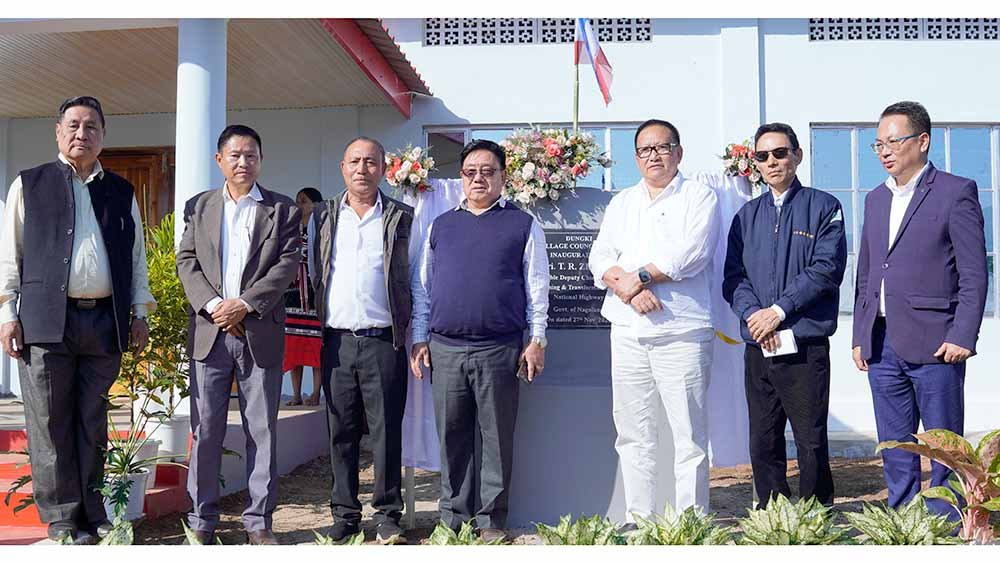Deputy chief minister, TR Zeliang on Thursday said that a renewed framework for the recognition, protection and practical application of Naga customary law within contemporary governance structures is the need of the hour.
He said that the government of the day is committed to upholding the unique cultural heritage, social institutions and traditional dispute-resolution mechanisms of the Naga people.
A press release by the media cell of the deputy CM’s office stated that T.R Zeliang, while speaking at the inaugural function of Dungki Village Council Hall attended by tribal bodies, village councils members, and administrative officials, asserted that Naga customary law remains a living system, deeply rooted in community values, identity and time tested practices.
He also stated that Naga customary law is not merely a cultural artifact, but active pillar of Naga society.
T.R. Zeliang also suggested that the traditional norms are respected legally, safeguarded and harmonized with modern governance for the benefits of every citizen.
He stated that the government is willing to extend support to tribal bodies for documenting and codification of customary practices while ensuring that the living and flexible nature of customary law is preserved.
T.R. Zeliang further stated that Village Council and traditional institutions should also receive enhanced administrative backing in resolving civil and community disputes in accordance with customary principles as recognised under Art. 371 A of the constitution of India.
A comprehensive awareness initiative should be launched to educate youth, students, public office about the significance and lawful status of Naga customs and traditions, Zeliang added.
“Our goal is not to alter customary law but to strengthen its rightful place within the modern administrative framework.”
He said adding that a working group should also be form to address areas where customary law and statutory law intersect to ensure clarity, fairness, and community participation in decision.
Nagaland Customary law active pillar of Naga society: T.R. Zeliang
DIMAPUR

